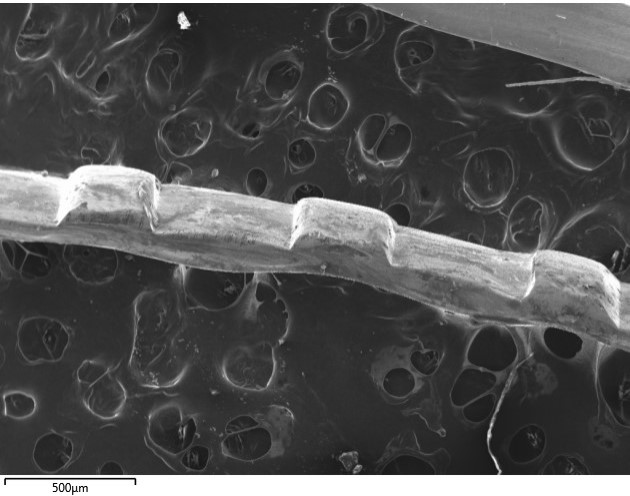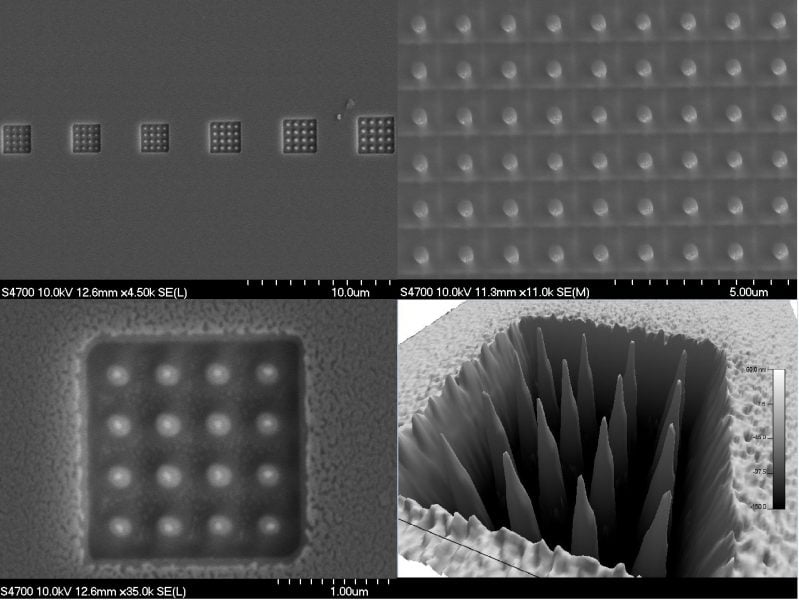The FESEM repairs are completed and the instrument is back online.
I have good news and better news. Good news is we have a work around for the software issue with AZtec. We will be able to capture images and perform EDS using another software package called INCA. The even better news is that our new EDS detector, which comes with a computer upgrade, will be here in May.
I can assist with training on the INCA software. It is very similar to AZtec so most usera will pick it up quickly.
The software for AZtec is not loading. We’re working with Oxford on this issue. The ESEM works, but images will need to be captured using the instrument and the EDS will not be available.
April 19
Good news. The parts have arrived and the technician will be on site tomorrow. Hopefully repairs will be completed soon.
April 18
The FESEM is down due to computer issues. I’m working to resolve the problem and will update you as soon as I can.
Unfortunately we will need to bring in a service engineer to repair the FESEM. The FESEM will be unavailable until the repairs are completed. They are currently ordering the necessary parts and will be scheduling repairs ASAP.

An Advanced Metalworks Enterprise undergraduate student team, sponsored by Lear Corporation, is studying the performance of copper electrical wires in automobiles. Corrosion is the most common failure mechanism of wires used in crimp connectors; deformation in the wire terminal’s tin plating can cause additional contact issues within the connector. Electron microscopy aids in pinpointing the location of corrosion products on the wire and observing deformation in the tin plating. With this analysis, the team can now explore ways to improve the wire quality or crimping mechanism to minimize wire failures.
Image taken by Eli Harma and Reese Eichner, senior undergraduate materials science and engineering students, on Philips XL 40 ESEM.
Learn more about the Advanced Metalworks Enterprise at MTU: AME Website
Visit the Applied Chemical and Morphological Analysis Laboratory’s webpage to learn more about our shared facility and instruments available to the Michigan Tech research community: ACMAL

The successful fabrication of miniature optical components is key for progressing current optical technologies. A family of such miniature optical components must be able to efficiently rotate linearly polarized light at small scales. Estefanio Kesto, under the guidance of Dr. Miguel Levy, is studying the interaction between light and ferromagnetic iron garnet nanostructures. It has been observed that the polarization rotation of linearly polarized light, known as the magneto-optic response, traveling through such a nanostructure will be enhanced. The ferromagnetic iron garnet nanostructures pictured above, which enhance the magneto-optic response, are being studied to further miniaturize polarization rotators and other interferometric components. Additionally, Professor Levy and his research group are diving into the unexplored region of magneto-optic beam splitting and its applications in classical and quantum computing.
Pillars fabricated and image taken by Estefanio Kesto, undergraduate student in electrical engineering, using ACMAL’s Hitachi FB-2000A FIB, Hitachi S-4700 FE-SEM, and Asylum Research MFP-3D Origin+ AFM.
Read more about the Dr. Miguel Levy’s research in the following articles:
Nonreciprocal magneto-optic beam splitting
Visit the Applied Chemical and Morphological Analysis Laboratory’s webpage to learn more about our shared facility and instruments available to the Michigan Tech research community: ACMAL
During spring break the facility will be open during normal business hours (Monday through Friday, 8am – 5pm). I will be out of the office starting today (3/4) and returning on Monday 3/14. During my absence you can contact Ed Laitila for any facility emergencies.
If you need sample coated please contact Joshua King (jorking@mtu.edu) or Keith Pickelmann (krpickel@mtu.edu).
Hope everyone has a nice spring break!
The EDS system on the Field Emission SEM is down. We are working to get it back up and running.
The work done on the EDS last October is complete and the system is functional.
The eyewash station in the sample prep lab is being replumbed. Therefore the electropolishing lab will be closed until the project is complete and the eyewash station back online. We expect the project should be done by Thursday 2/24 at noon.